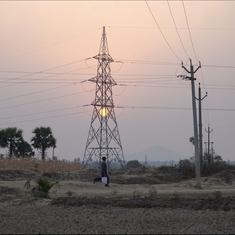Multiple regulations, such as the Pre-Conception and Pre-Natal Diagnostic Techniques Act, 1994, seem to be proving insufficient due to lax enforcement by the authorities and the sex ratio in the country remains low at 943 girls for every 1,000 boys.
In addition, authorities now have to deal with a new front: the internet, as newer ways have to be found to deal with online advertising and e-tailing.
Blanket bans
Last month, a long-standing petition prompted an order from the Supreme Court barring search engines like Google, Yahoo and Bing from advertising or promoting prenatal sex selection advertisements on their sites. The petition claimed that the websites were earning revenue from keyword searches such as “sex selection kits,” which would be illegal in India.
But not everyone agrees, arguing that stringent blocking of keywords might be going overboard. “The problem is keyword based blocking which is not limited to advertisements. For instance the petitioners want the phrase, "boy or girl" blocked from ads as well as Web pages,” said Apar Gupta, a lawyer from New Delhi while speaking to Scroll. “If the specific mode is a keyword filter it may result in overbroad blocking of web pages which solely cater to information on pregnancy.”
Google, however, maintains that it is taking steps to ensure advertisements promoting sex selection do not show up. “In India, we do not allow ads for the promotion of prenatal gender determination or preconception sex selection,” the company told Scroll. “We are therefore already in compliance with the orders of the Hon’ble Supreme Court and the provisions of the Pre-Conception and Pre-Natal Diagnostic Techniques (Prohibition of Sex Selection) Act, 1994,” it added.
Going too far?
Activists are however looking beyond search engines, and even targeting books available online that not only deal with sex selection but also claim to help parents select the sex of the child.
Girls Count, a collective of civil society organisations aimed at empowering women and arresting gender based sex selection, has started an online petition that has so far garnered almost 9,000 signatures and goes on to argue:
Flipkart, Amazon.in, Junglee, Naaptol, Google, Microsoft and Yahoo should be held accountable for advertising and selling publications on sex selection online, promoting daughter dislike and making profits by breaching the law of the country. Now that the entire nation is promoting the value of girl child, advertisement and sale of such publications by these search engines and online shopping websites defeat the purpose of the Government of India's commendable programme- Beti Bachao Beti Padhao that seeks to promote equal value for daughters.
On their radar are books such as Gender Selection: Learn How To Conceive A Boy Or Girl available on Flipkart for Rs 600 as an e-book. It claims to not only help you learn the “diet changes that could affect the gender of your baby,” but also advises the parents on the “right” sexual position which can “influence” the gender of the baby.
According to the description on the site, the methods in the book have been used by “thousands of couples” to select their preferred gender in the baby. Listed under the category “Health and Fitness”, the book is only one among several others available on the site including one by an Indian author which comes at a 7% discount.
A cursory search at Flipkart and Amazon showed up at least four such books, with prices ranging from Rs 50 to Rs 1,500. Our repeated queries elicited a generic response from e-tailers who claimed that they "take strict action against sellers who attract negative feedback about their service or are found to be engaged in selling products that are fake, in violation of copyright or any other applicable laws of the land."
Banning books?
It is easy to argue that such books also happen to be available in regular book-shops and publishing them is not prohibited by law, as it is to dismiss them as quackery, as medical science would simply scoff at such outlandish claims, Gupta disagrees with the petitioners, arguing that censorship is not the answer.
“[Books] should not and cannot be be prohibited,” he said. “The least invasive form of censorship should be adopted. Short of a book, providing a physical map to a sex selection clinic, no book on pre-natal diagnostics should be filtered.” He added that filtering of books based on search terms and not their content could be counter productive.
Rizwan Parwez, campaign coordinator with Girls Count, however disagreed with Gupta's contention, maintaining that such literature could fuel patriarchy. “We know that the society we live in is infamous for female foeticide and infanticide,” he said. “In such a situation, wouldn’t it be better if we don’t open more avenues for people to break the law and determine sex of their unborn children?”










